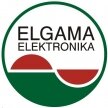-
Product Catalog
- Security and Surveillance Systems
- Automatic Circuit Breakers for Direct Current (DC) Circuits with Integrated Overload, Short-Circuit, and Voltage Stabilization Protection Functions
- Lighting with the help of electrical energy
- Automation and Control Systems
- Sealing profiles | rubber | gaskets | strips
- Inflatable Liquid Storage Tanks | Reservoirs | Bladders
- Inflatable rubber plugs for sealing high-pressure plumbing pipes
- Electrical distribution and installation
- Solar Energy Generation and Management Equipment
- HVAC control solutions for heating and ventilation.
- Special products and accessories
- Other products
- Safety tools
- Quality used products
Fuses
-
Read more
Fuses are essential protection elements in electrical systems, designed to protect equipment and wires from excessive current that can cause short circuits or other electrical failures. Fuses act as automatic circuit breakers: when the current exceeds a preset level, the fuse breaks the circuit, thereby protecting devices and users from potential hazards.
Applications: Fuses are widely used in various fields:
In residential areas: Protects electrical installations from fire or equipment damage due to overload.
In industry: Ensures the safety of industrial machines and equipment by protecting them from current fluctuations.
In vehicles: Protects electrical systems from excessive current, ensuring the safe operation of vehicles.
Types of Fuses:Traditional fuses: For example, glass or ceramic fuses that simply physically break the circuit when they blow.
Automatic fuses (MCB): Resettable circuit breakers that can respond to both overloads and short circuits.
RCD (Residual Current Device): Protective devices that disconnect the circuit if they detect a leak, thus protecting people from electric shock.
Advantages:Protection: Effectively protects devices and systems from damage.
Reliability: Quickly responds to overloads and breaks the circuit, reducing the risk of fire or electric shock.
Easy to install: Most fuses are easily installed and replaced.
Disadvantages:Dependence on current: Fuses only respond to changes in current, so it's important to choose the right parameters.
Physical damage: Traditional fuses can fail and need to be replaced when they blow.
Technical Parameters:Current rating: Determines the maximum current the fuse can tolerate before breaking the circuit.
Voltage: Fuses must be appropriately selected based on the electrical network voltage.
Dimensions: Varies depending on the type and usage location (e.g., indoor or outdoor conditions).
Usage: By choosing the right fuses, safe electricity supply can be ensured and the risks associated with electrical systems can be reduced. Fuses are essential both in homes and in industry to ensure long-term and reliable operation of electrical systems.No items found.
US IN SOCIAL NETWORKS
























